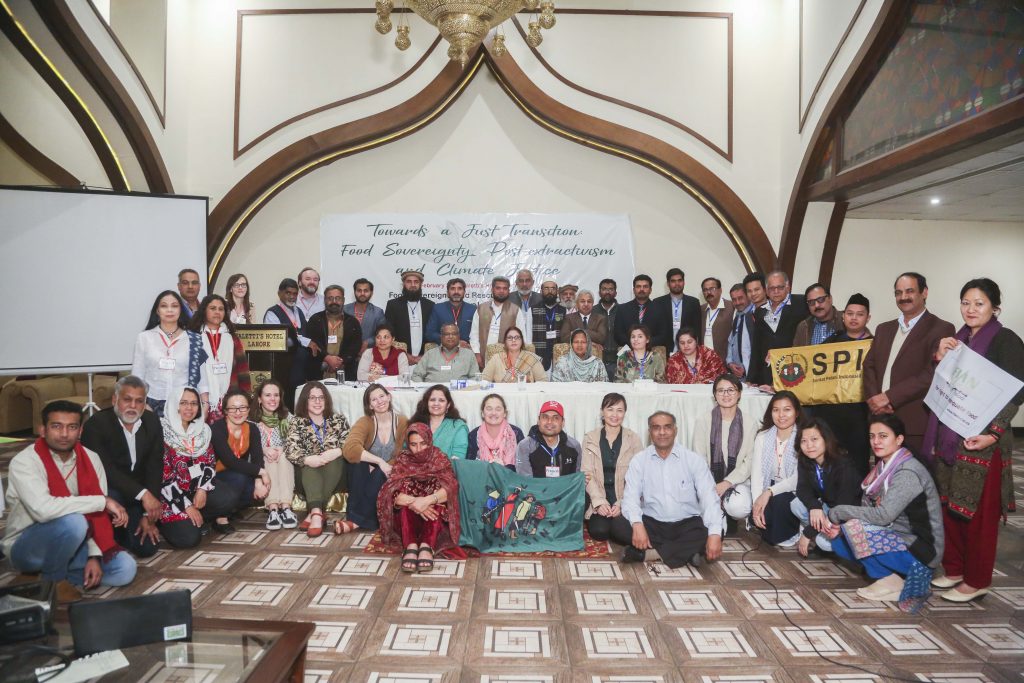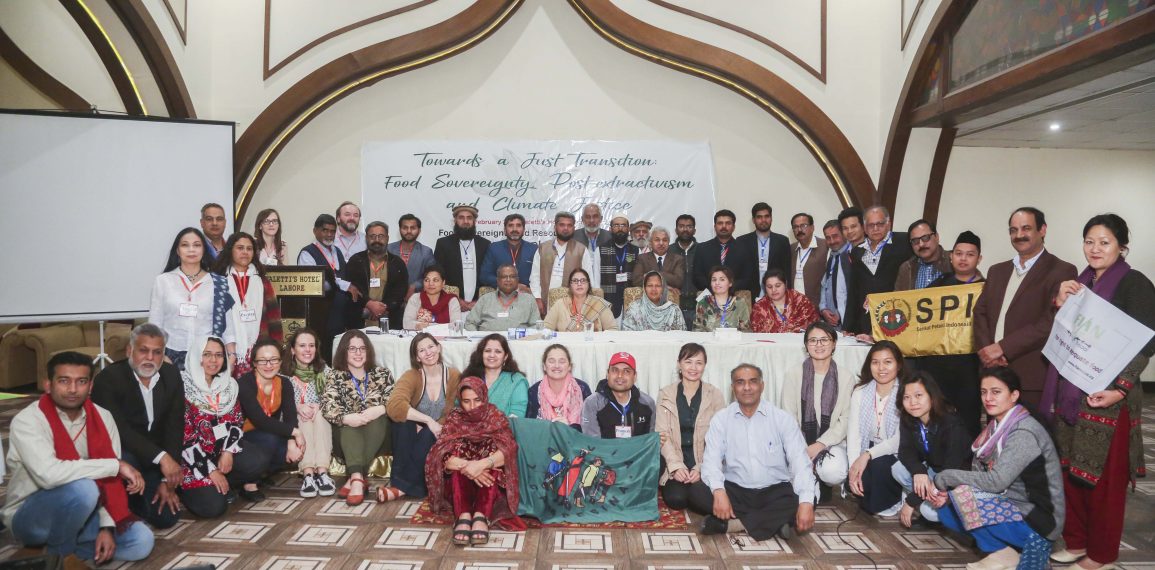AEPF Lahore Report - Towards a Just Transition: Struggles for Food Sovereignty, Post-Extractivism and Climate Justice

6-8 FEBRUARY 2020
LAHORE, PAKISTAN
CONFERENCE REPORT
Author: Tabitha Spence
Editor: Sylvia Kay, Transnational Institute
INTRODUCTION
The conference “Towards a Just Transition: Struggles for Food Sovereignty, Post-Extractivism, and Climate Justice” organised by the Food Sovereignty and Natural Resource Justice cluster of the AEPF brought together 62 participants from 13 different countries across Asia and Europe including from Bosnia Herzegovina, France, Germany, Indonesia, Malaysia, Myanmar, the Netherlands, Nepal, Norway, Pakistan, the Philippines, Sri Lanka and Thailand.
The aim was to consider in light of converging food, resource and climate crises what kind of social, ecological, economic and material transition is needed in different contexts and what would constitute a just transition as opposed to simply a technocratic response. A cornerstone of the clusters’ engagement with this question is the argument that food sovereignty, agroecology and postextractivism play a central role in bringing about this transition. These principles entail centering democratic approaches to decision-making regarding land, food, seeds and community resources, alongside acting in alignment with the scientific necessity to mitigate the climate and wider ecological
crises. While the corporate-controlled food system is one of the main drivers of global warming, peasant agroecology and food sovereignty offer massive potential for reducing emissions, by keeping fossil fuels underground, adapting to climatic changes and realizing social justice. Therefore, peasant agroecology and food sovereignty are social, political, and ecological visions that unite multiple
sectors within a single movement to challenge business-as-usual and create systems of shared control
over the requirements of life.
The following points sum up some of the challenges our cluster is taking on:
- Given the bottom-up approach that agroecology implies, there is currently a disconnected structure for using, sharing and building upon resources already available. The spread of agroecology requires inclusive, community-oriented methods for peasant-to-peasant
networks, horizontal training and pedagogies. - There is an aggressive promotion of big data and other technological approaches by agribusiness, supported to some extent also by various parts of the media and by public policies. The challenge is to change the discourse and prove the validity and innovations of peasant-led agroecology, while debunking the myth that agribusiness is innovative, efficient and successful for sustainable and fair food systems.
- Industrialized agriculture and the corporate food system are at the center of the climatecrisis. Yet, rather than taking immediate and far-reaching action to make fundamental change, governments and corporations promote carbon markets, geoengineering and technological fixes they say are “triple wins” for sustainability, development and equity
- There is a lack of political action to address the non-sustainability of industrial farming models and a lack of policies allowing peasants’ and other small-scale food producers’ access to natural resources and commons. There is a need to enhance the recognition among key decision makers of agroecology and its benefits, and to establish supportive policies.



